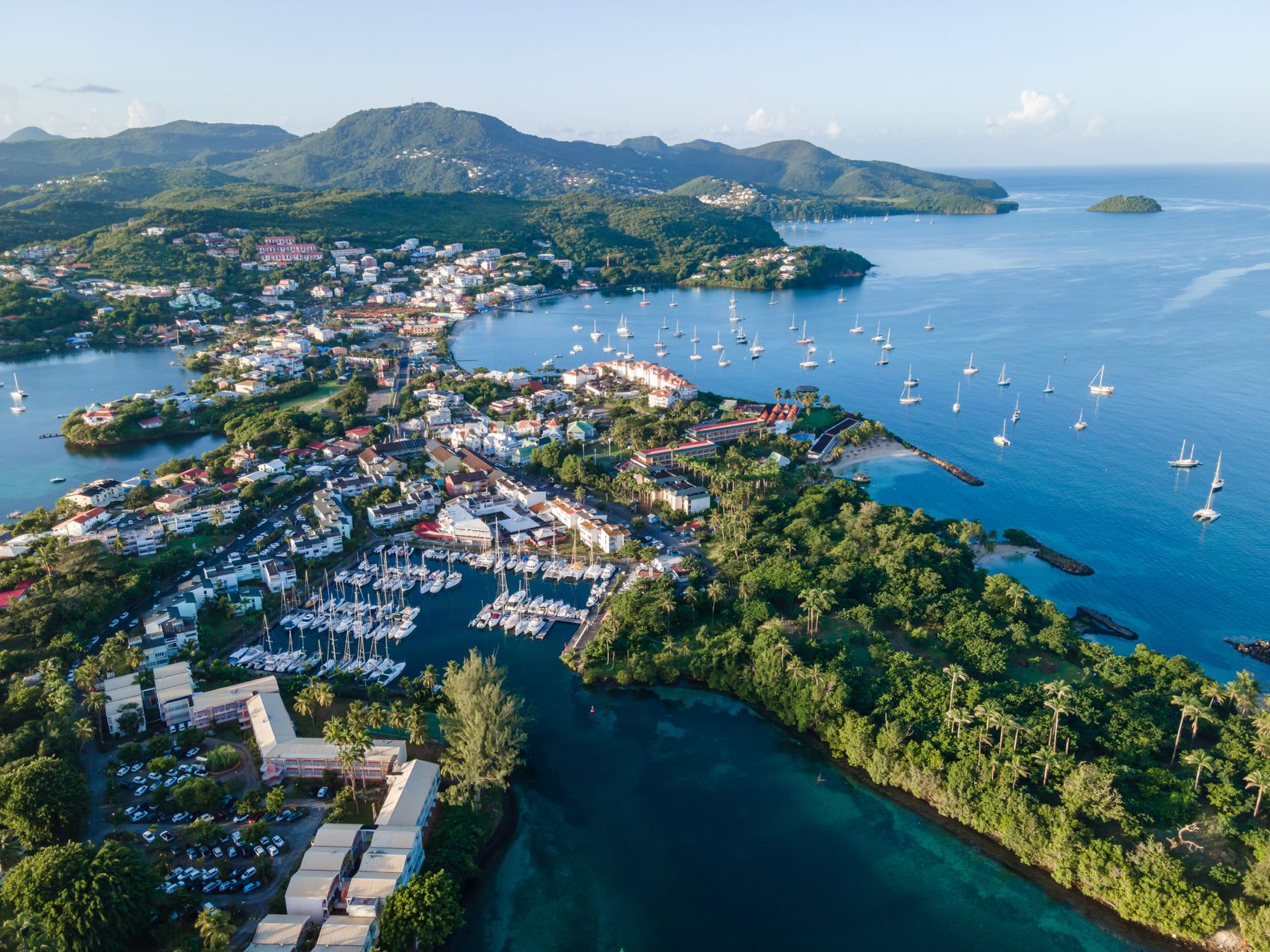Winter is coming, and the sea is calling! Change the cold and snow for warmth and beaches. The most accessible Caribbean island from Europe is the Island of Flowers - Martinique, with its typical Caribbean vibes. Hop along its coastline and let yourself be infatuated by tropical flair mixed with French glamour. This largest windward Caribbean island welcomes all types of sailors.
Why Martinique
The island of Martinique is a piece of France set in the paradisiacal Caribbean. Martinique is more laid back than the northern Caribbean but more refined and cosmopolitan than the southern islands.
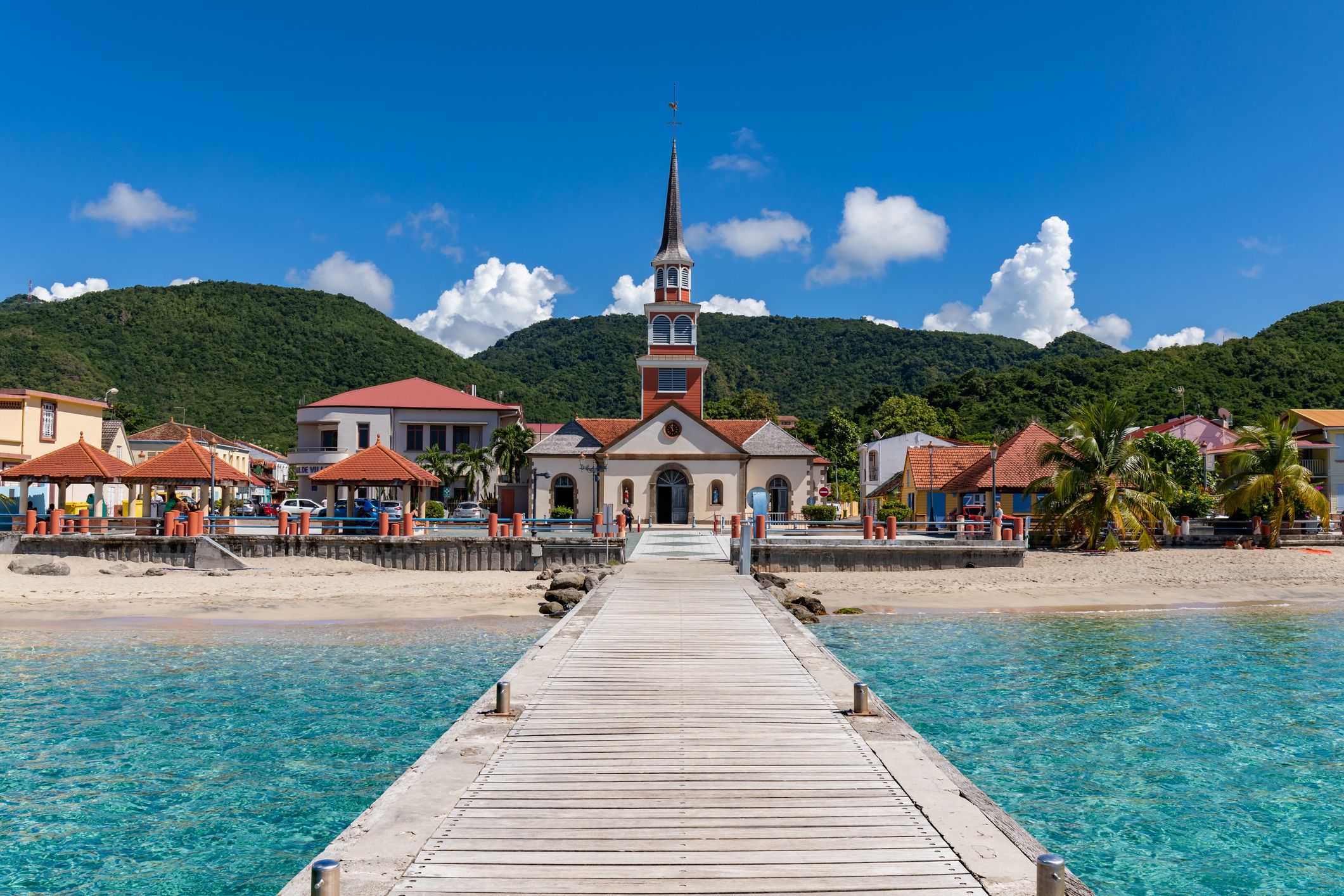
This island belonging to the Lesser Antilles offers more than the classic Caribbean package - it is not “just” sandy beaches, coconut trees, rhythmic music, sensual dances or the world’s best rum. The island keeps the European standards with bakeries and pharmacies on every corner, but the whole setting is still exotic and one of a kind.
The culture is enriched with Creole heritage. You can easily recognize this influence when ordering local dishes, especially fish specialities. Blessed with flawless nature, Martinique stands out for rain forests, waterfalls, picturesque coves on the south and a high volcano on the north.
Consider Martinique as your next winter getaway destination because of:
- easy access by air from Europe to a country belonging to an EU zone where you pay with a euro
- a bit more sporty and adventurous sailing around with the possibility for longer stretches but also apt for common bay-to-bay type of sailing
- the world’s most delicious rum and cheerful atmosphere
- majestic and legendary Diamond Rock sticking out of the water, black and white sand beaches and other natural wonders
- short distance to other Caribbean islands, such as Dominica to the north or St.Lucia to the south
When to go and how much it can cost
Martinique is almost an all-year destination; however, the best sailing season is from December to May, with the peak from February to May. June to October follows the period with the highest probability of storms and potential hurricanes. December is known for special Christmas winds, bringing along unpleasant windy surprises.
The flight ticket from Europe to Martinique will cost you around 700 - 1000 EUR during the high season. In general, January counts as the cheapest month to go to Martinique.
You may save on dinner as you can easily catch one by yourself directly from the sea. Prices in restaurants are similar to those in other European countries during the summer season. During the work week, most restaurants offer a Menu du Jour (Menu of the Day) with a starter, a main course and a glass of wine.
Weather and sailing conditions
Like everywhere in the Caribbean, expect high humidity and hot days. You can cool off while sailing - typical trade winds blow from NE and SE with a suitable force for superb sailing.
Be aware to consider tides when anchoring - the range fluctuates between 5 - 40 cm. Anchoring is otherwise pretty comfortable, with your anchor dropped on the sand/mud seabed. Martinique offers plenty of sheltered bays to moor within a short distance.
Best routes
The largest yachting base lies in the Le Marin. From there, you can either circumnavigate the island, head south or cruise north to Dominica or Guadeloupe along the coastline with stops at Anse d’Arlet, Fort de France and St. Pierre.
The northern route enables one to reach another Caribbean island within a relatively short distance. However, the passage between Martinique and Dominica may sometimes turn too wavy and windy for sensitive stomachs.
The option of sailing south to the nearby island of St. Lucia lets you explore the waterfalls, hot springs and volcano. The southern route tends to trigger sea sickness less than the northern route, and the sailing here is wonderful. Allow for more time when dealing with customs formalities when visiting other Grenadines islands.
A favourite alternative is the “sail and stay” combination when you sail for a couple of days and stay in a hotel for another part of the holiday.
Suggested 7 days itinerary - the Northern route
The sailing base for this itinerary is the already-mentioned marina du Marin in the south. It will take you 45 minutes to get there from the airport in Lamentin, which is close to the capital, Fort-de-France. From the marina you will explore the west coastline and sail up north to Dominica.
This itinerary is suitable for all levels depending on the boat, weather conditions and your skills as a skipper or crew member. The stretch from Martinique to Dominica is the longest one in the plan. Feel free to focus solely on Martinique and leave Dominica for next time.
- Day 1: Le Marin - Salines - St. Anne (8 nm)
- Day 2: St.Anne - Anses d'Arlet (7 nm)
- Day 3: Anses d' Arlet - Anse Noire - Saint Pierre (15 nm)
- Day 4: Saint Pierre - Roseau (Dominica) (33 nm)
- Day 5: Roseau - Anse La Touche (33 nm)
- Day 6: Anse La Touche - Fort de France/Marigot du Diamant (15 - 25 nm)
- Day 7: back to Le Marin (9 - 20 nm)
You can find the route on Google Maps on this link.
Day 1: Le Marin - Salines - Sainte Anne (7 nm)
Once you are done with check-in and provisioning, embark on your Martinique dream voyage. Start with a short detour from your northern route and set foot on the most beautiful Martinique beaches. Particularly, the southern coast and Sainte Anne is an unmissable area. This part of the island offers a heavenly setting with postcard bays covered with white sandy beaches that are lined with mangrove and coconut trees.
What to see?
When in the south, Salines beach is a place not to be missed out. Relaxing, sunbathing and walking on this very long and narrow, palm-lined beach is a must. Make this famous stopover first and only then make your way north to Sainte Anne. There are plenty of delicious eating options alongside the beach, although the snack bars usually close at 16:00. No need to hurry up. Stay on the Saline beaches until late afternoon since you can be sure to find a spot in the huge Sainte Anne bay anytime.
Don't miss a visit to the lovely town Sainte Anne with its vivid Creole houses and market with fresh fish, spices and local crafts.
Where to stay?
Drop your anchor in the spacious Sainte Anne bay with a sandy bottom, no rolling, and excellent protection from E-type winds.
You can take a dinghy to the shore and walk on the long stretch of beach Pointe Marin - a popular family-friendly beach with shallow waters. From this anchorage, you can hike to a mythical volcano, Piton de Crève Coeur. The path is mostly shaded, and you come across several viewpoints.
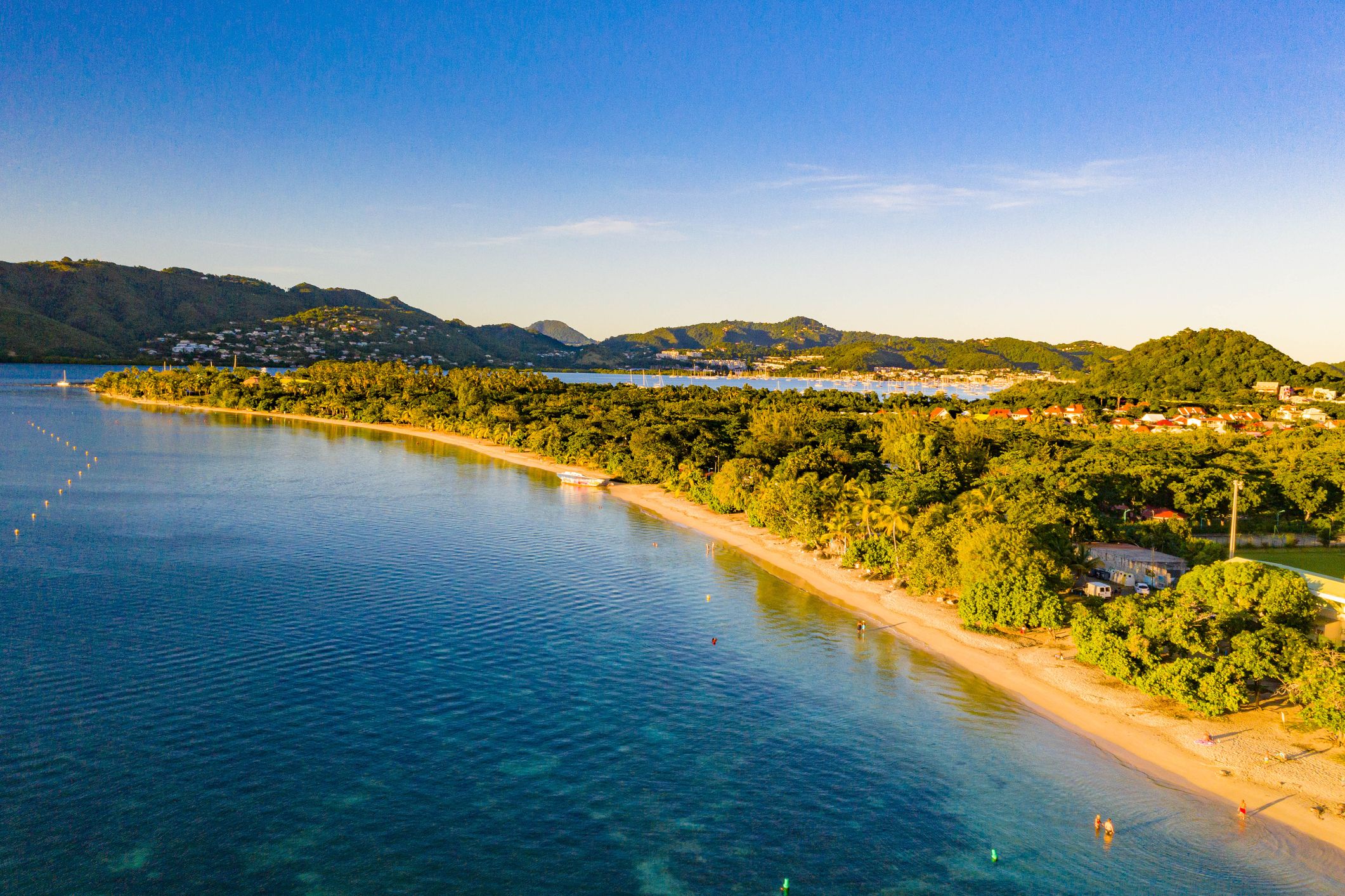
Day 2: St Anne - Grande Anse d’Arlet (15 nm)
On the way to your final overnight anchorage, you will sail past an uninhabited island, Diamond Rock, a peculiar rock formation standing out of the sea. Later today, swimming with turtles will become a memorable experience.
What to see?
Get your cameras ready to shoot the Diamond Rock, which resembles a sunken warship. This huge stone island was part of the Royal Navy for some time when it played a strategic role in a battle between France and the UK. Today, the only visitors are scuba divers.
Start preparing your snorkelling gear to explore the underwater paradise. The marine life is pretty extensive in the Anse d’Arlet. The bay is a true paradise with crystal clear waters, rich biodiversity, tropical forest and white sand with large rocks. Your favourite activity will be swimming in the company of turtles.
Where to stay?
The bay Anse d’Arlet consists of two parts - the northern part is more popular, and the southern bay lures divers because of the coral. Anchoring is prohibited, so grab the mooring buoy (just don’t mistake it for a crab pot). The bay is very well-protected from almost every direction in the E sector.
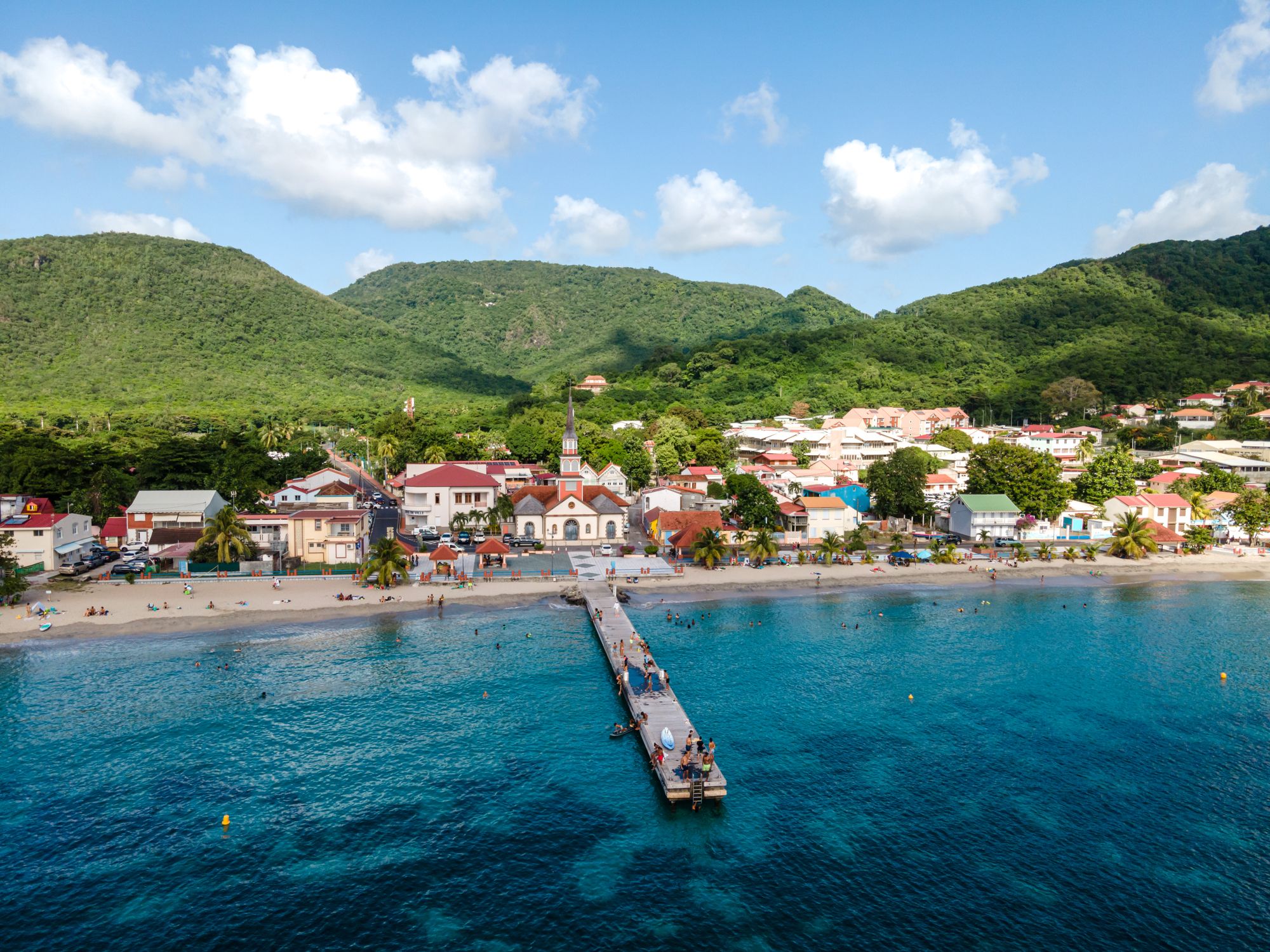
Arrive hungry in this bay because you will fill your stomach with tasty food and cocktails while sitting right at the sea in a sun chair. Ti Payot, Ti Sable or Pélican Bleu are all good choices for a dining place with excellent views. When in Martinique, don't forget to order the national cocktail Ti Punch (“ti” meaning petit or small) mixed with black rum, lime and sugarcane syrup.
Day 3: Anse d’Arlet - Anse Noire - St Pierre (15 nm)
Although it will be difficult to leave this exotic piece of beauty, there are more astonishing stopovers en route. From amazing scenery with black sand beaches and big cliffs, you will continue to a Little Paris of the Caribbean.
What to see?
Have lunch onboard and a snorkelling break in the magnificent Anse Noire Bay. You can snorkel to a cave, relax on a black beach, rent a kayak or, again, swim with turtles. When anchoring, make sure to have enough space around you because of rotating winds.
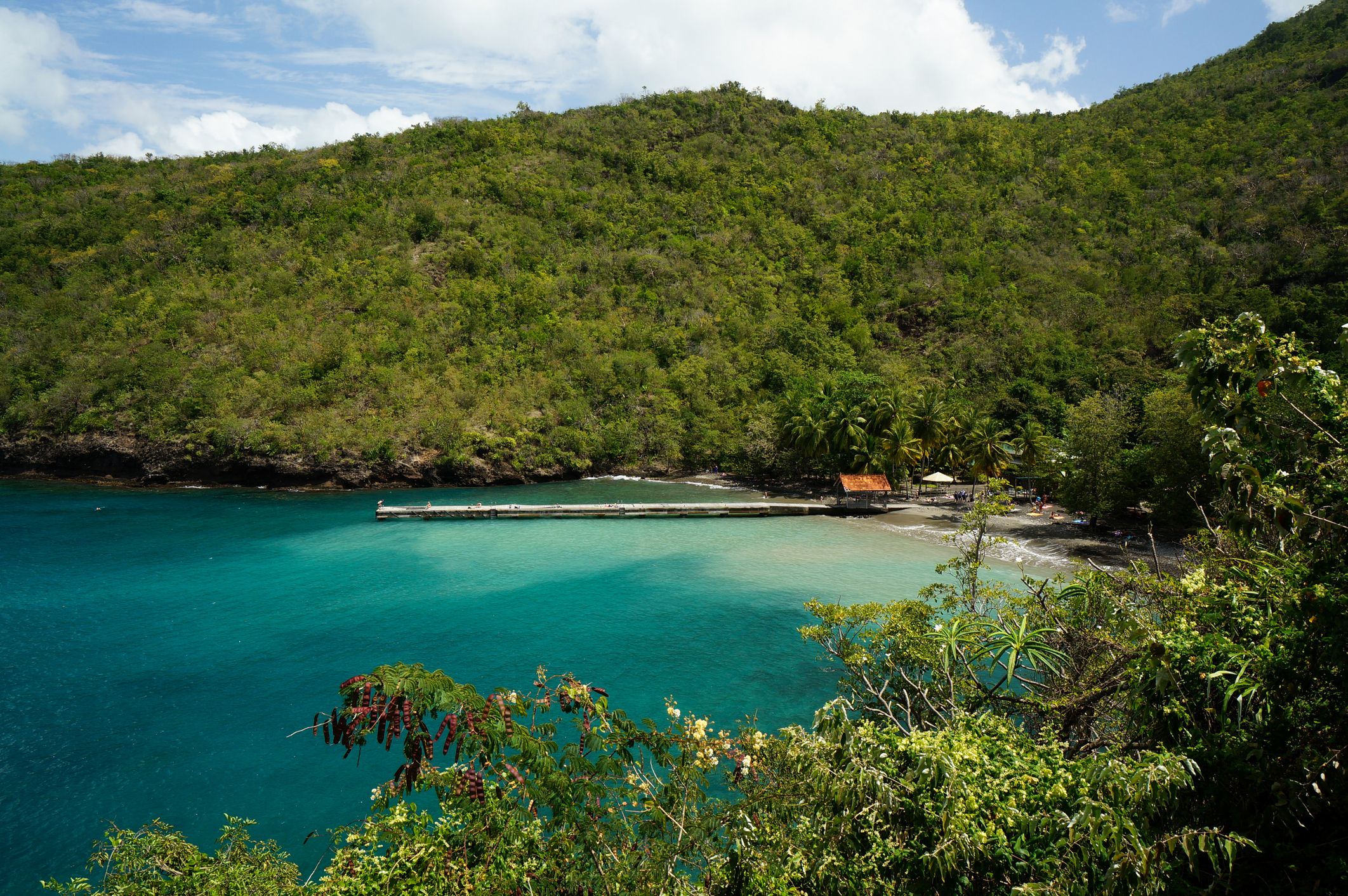
Later on, continue sailing north to Saint Pierre, formerly known as the capital of Martinique under the nickname Little Paris of the Antilles. The town was destroyed in a volcanic eruption, but the setting with Mount Peleé in the background remains breathtaking.
This little colonial town is surrounded by tropical rainforests with fog hovering over the lush vegetation. Change the water activities for visiting cafés, museum, old prison, fort and an open market with exotic fruits. Kids will love the zoo set in the historical ruins of an old distillery. Adults will enjoy themselves while tasting the best rum. And divers will be thrilled to dive to sea several shipwrecks and mermaid statues.
Where to stay?
The anchoring here is a bit challenging because of limited space and rolling. We recommend anchoring closer to the beach in an anchorage called Rade de Saint-Pierre Sud. Drop your anchor on the sandy bottom in 4-6 meters of water. Another option is the bay Anse La Touche, a bit further from the town than the previous anchorage but very quiet.
In Saint Pierre, stroll around this cosy area, get ice cream from a shop opposite the church, and drink coffee at Créole Arts café, which has a small art gallery. If you are a fan of rum, don't hesitate to pay a visit to the nearby Depaz rum distillery.
Day 4: Saint Pierre - Roseau (Dominica) (33 nm)
Get ready for the open-water sailing adventure! Leave early and hoist your sails with course to Dominica. This island is often missed and forgotten, but we promise that you will indeed have an unforgettable day.
What to see?
Try to arrive as soon as possible and have a blast while sailing to Dominica. This steep volcanic island will amaze you with its lush vegetation and wild nature. No wonder it is nicknamed Eden Garden.
If possible, take a guided hike with SeaCat so you can thoroughly and safely explore the wild beauty of Dominica. Walk in the forest to magnificent waterfalls, lakes or hot springs. You may get a chance to rappel down a waterfall.
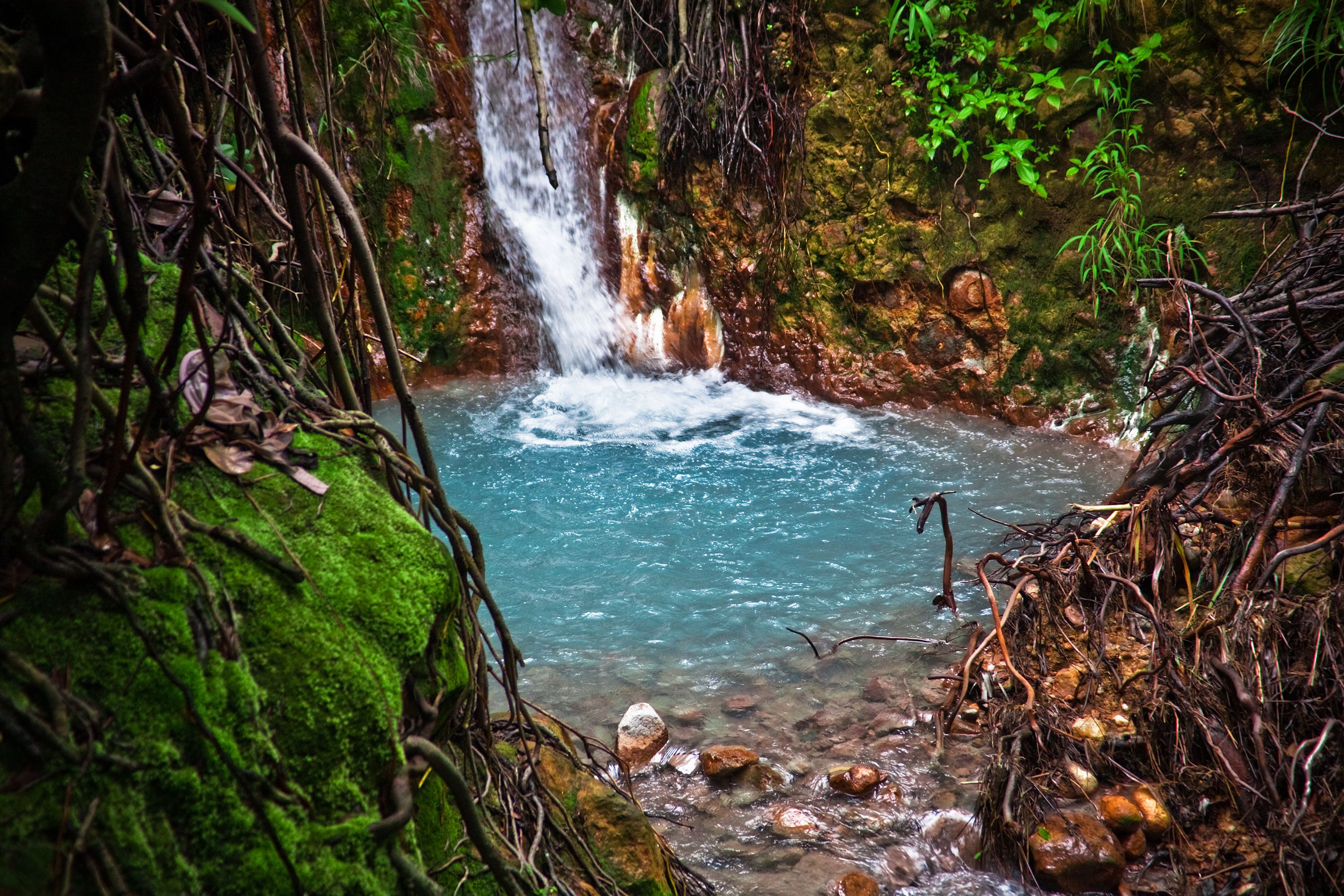
The capital, Roseau, deserves a visit, too - the old market square has several stalls and bars to choose from. Eat some Creole and Caribbean specialities such as buljol, made of cod fish or Colombo de Martinique - a stew made from lamb cooked in coconut milk.
Where to stay?
Dominica is scarce of good anchorage opportunities. We suggest sailing up to Roseau and moor to a buoy in the picturesque area managed by a company called SeaCat. The bay is located slightly south of Roseau, opposite Loubiere. Then, lift up the yellow flag on the starboard, and as skipper, carry out your clearance (customs formalities) in the village. It won’t take a long time.
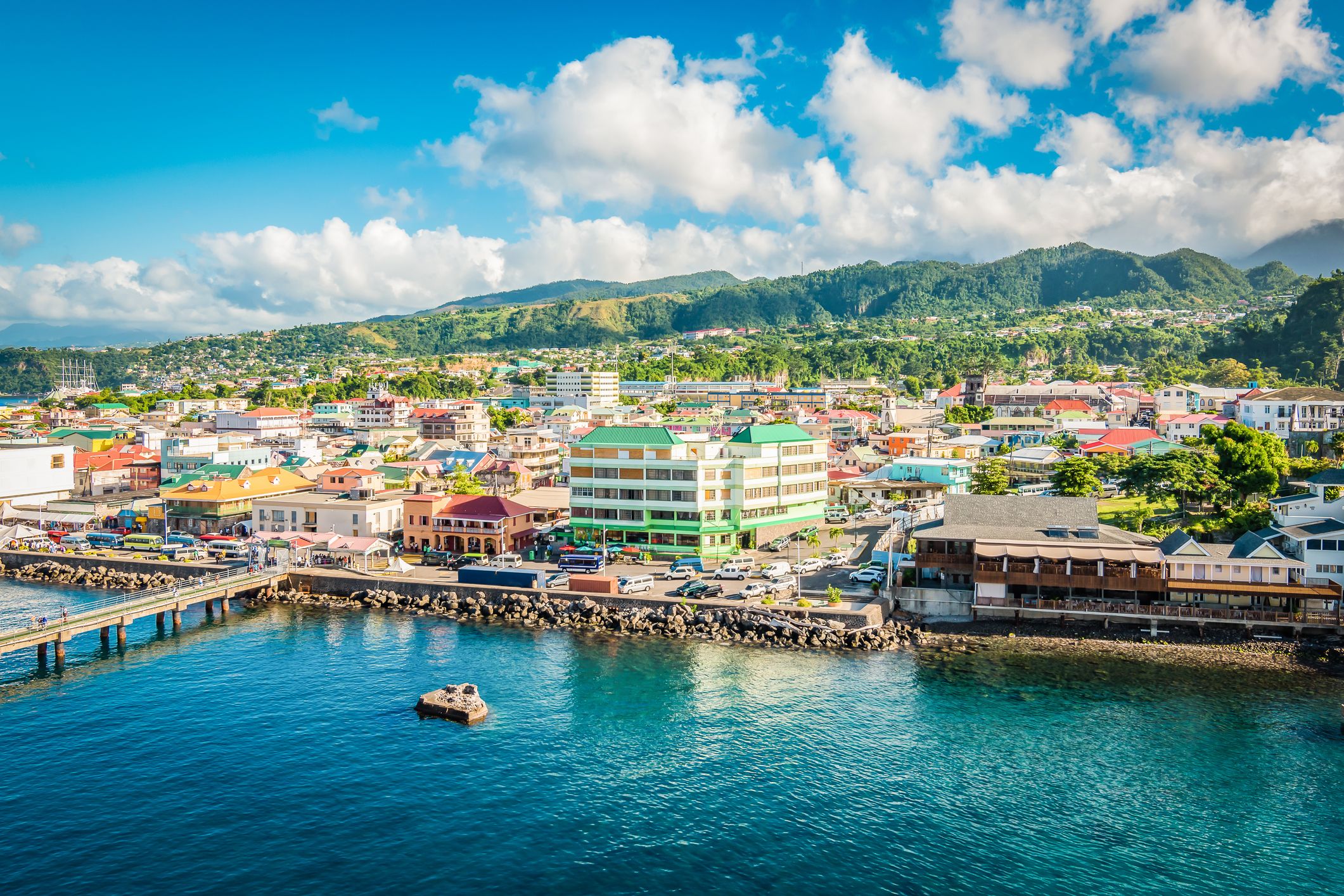
Day 5: Roseau - Anse La Touche (33 nm)
Take your time and buy some fruits and snacks at the market in Roseau for your sailing trip back to Martinique. Count with 5-6 hours for the return journey.
What to sea?
Instead of returning to St.Pierre again, we recommend an alternative - sail slightly more south to the bay Anse La Touche. If you didn't have time to see the ZOO and garden in St.Pierre, you can do so now as this picturesque wild park lies very near the bay.
Where to stay?
Anse La Touche is well-protected in case of NE and E winds, and the anchor holds firmly. Boats will turn in a circle and in opposite directions because of currents and tides, so make sure to leave enough space around your boat. What makes this bay an excellent choice is the beautiful view of Mount Peleé, visible in clear conditions.
Day 6: Anse La Touche - Fort de France / Marigot du Diamant (12 - 23 nm)
Early morning is the best time to go to the dock and get some morning catches such as tuna or mahi-mahi from the local fishermen. Today, you can head either to the capital of Martinique, Fort de France or to some exotic-looking bay.
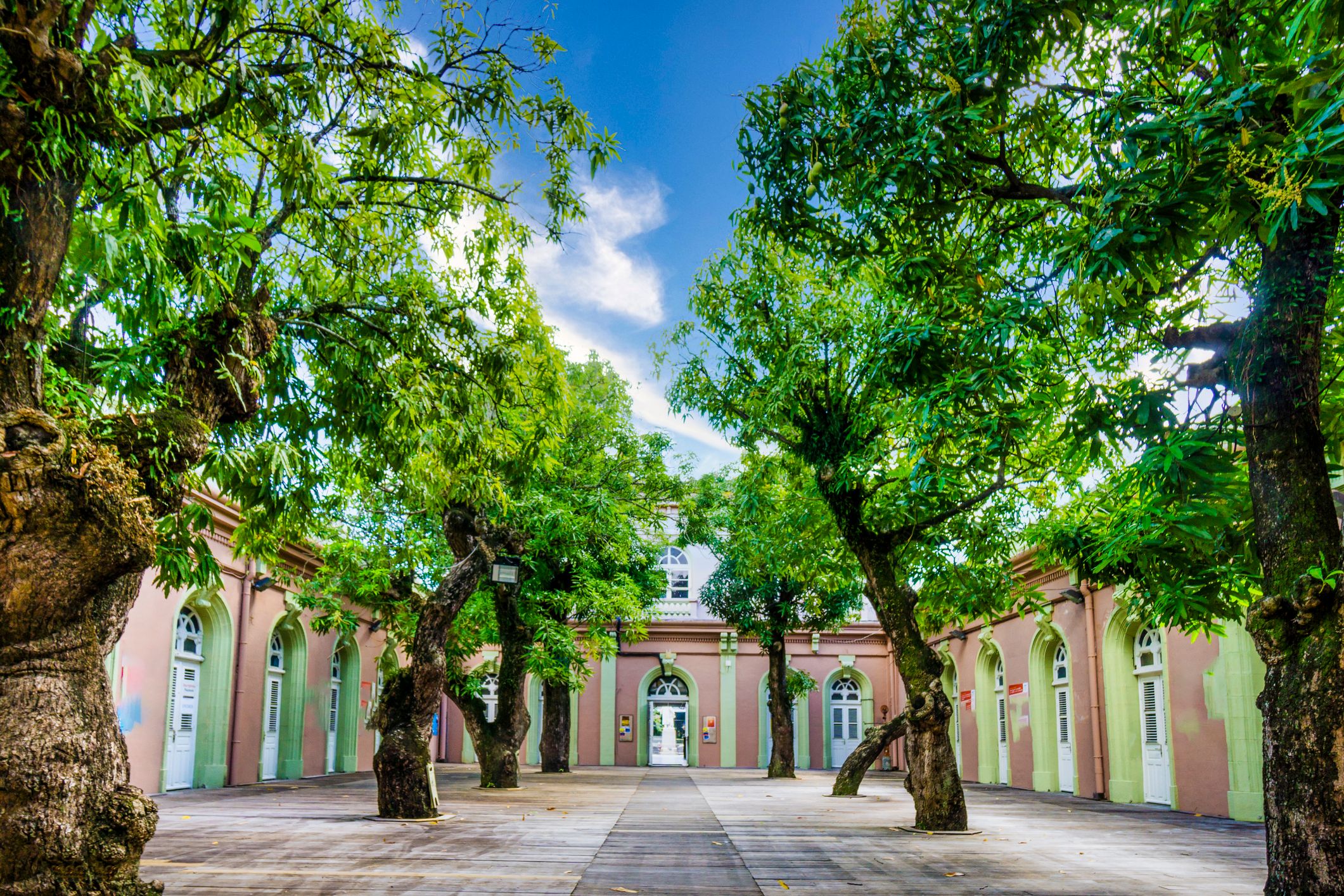
What to see?
In case you haven't already seen the birthplace of Napoleon Bonaparte’s first wife, Josephine, and you don't have enough time after your sailing holiday, today is the day to visit Fort de France, the capital of Martinique. Take a walking tour of the historical centre to see the main sights. Observe Fort Saint Louis, relax in the nearby park and buy local groceries, species and souvenirs in the largest market in Martinique. The famous Spice Market lies in proximity to the Cathedral and to your anchorage as well. They sell a local specialty, Bois Bande, a bark of a tree that allegedly has aphrodisiac power.
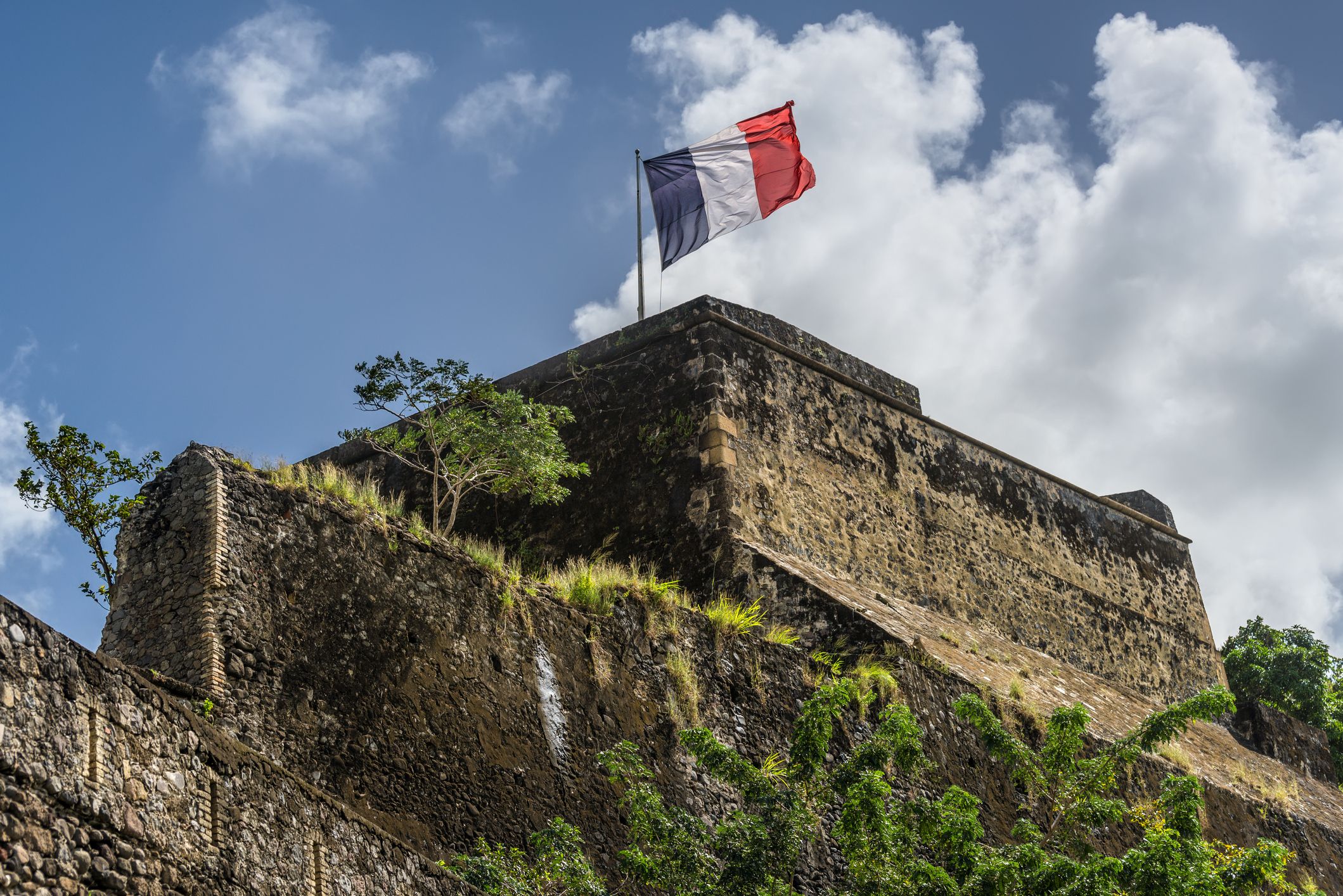
Where to stay?
If you opted for a visit to Fort de France, the best way to get to the city is from the Fort Saint-Louis anchorage. You can stay here overnight if you don't mind evening shuttle ferries causing unpleasant waves.
You can leave the bustle of a town and sail to another overnight anchorage on the south - Marigot du Diamant. It will take 13 more miles from Fort de France to Marigot du Diamant. The bay is wide and very well-sheltered from almost all directions. You will witness wonderful scenery from the deck. The captivating picture consists of an imposing volcano covered with forest.
Day 7: back to Le Marin (9 nm)
Take your time and sail a few minutes back from Marigot du Diamant to the lovely and not-so-busy Diamond Beach. Enjoy your last sailing day to the fullest.
The Caribbean region is a loveable region for every sailor, and it's very easy to have a crush, especially on Martinique. The omnipresent zest for life and excellent sailing conditions make Martinique an unforgettable sailing trip. Prepare for your next trip by choosing a suitable catamaran or sailing boat on the Boataround website.
